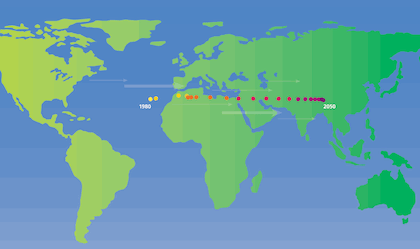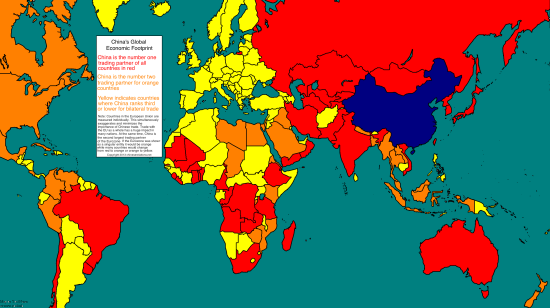6.00 – 7.30pm: Faraday Lecture Theatre, Lancaster University
For more information, and to register for the event, click here
2.30 — 6.00pm: By invitation only
Martin Jacques (Jacques), a British journalist and former editor of Marxism Today, has become a well-known pundit on Chinese issues since the publication of his 2009 book When China rules the world. In his recent article published on the Financial Times, he argued that Western views on China’s system are flawed. What does he think of China’s success today? What problems does the country face? Global Times (GT) London-based correspondent Sun Wei interviewed him over these issues.
GT: You recently said that China’s governance system has been remarkably successful for more than three decades. Is your conclusion mainly based on China’s economic achievements?
Jacques: No. It’s true that China’s economic transformation has been hugely successful with remarkable achievements. But that’s the core of a much wider change in Chinese society. I regard this as being a very successful period for Chinese governance in general.
The economy does not exist in isolation from society. It’s not something you can change on its own and everything else stays the same.
First of all, how do you transform the economy? The state in China has been extremely important in that process. Then, the impact of this huge change in the economy is to transform Chinese society: the shift of around 30 percent of the population from countryside into the city, the pressures of creating more modern education system, and the requirement for a new healthcare service. There are many aspects to it. You cannot have huge economic transformation like that without also having to reform, re-engineer and re-purpose the state.
Hong Kong Student Protest Leaders Plan to Visit Beijing to Bring Issue to China’s Premier Li Keqiang
As Hong Kong’s student protests continue to heat up this week, protest leaders plan to visit China’s capital city to bring the issue directly to Premier Li Keqiang.
But the planned trip to Beijing may be thwarted before it can begin. China’s Chief Secretary Carrie Lim says that students would be wasting their time coming to the capital if they were only going to repeat their same demands.
But the secretary general of the Hong Kong Federation of Students, Alex Chow, told reporters that Saturday’s planned trip to Beijing “symbolises that Hongkongers are not afraid of Beijing’s manipulation.”
These student protests, also referred to as the Umbrella Movement to convey how umbrellas are being used to deflect tear gas canisters and batons, started in September of this year to fight China’s decision on proposed electoral reform for the 2017 elections. The country’s Standing Committee of the National People’s Congress (NPCSC) announced that it would disallow civil nominations, essentially allowing the committee to elect two to three candidates before the general public could vote. This angered the Hong Kong Federation of Students and the protesters took to the streets to show their disapproval.
China will soon possess the world’s largest economy, and cultural influence will follow economic power. Martin Jaques argues in his book ‘When China Rules the World’ that this change will shape the next century. But what does it mean for the future of Buddhism?
What is the most significant development in the world over the last three decades: the end of the cold war? The clash between the West and militant Islam? Economic booms and crashes? Martin Jacques’ answer is the rise of China, which has quietly gathered momentum since 1978. When China Rules The World: The End of the Western World and the Birth of a New Global Order argues that, sustained by a population of 1.3 billion, China will be the dominant power of the 21st Century.
When this book’s first edition appeared in 2008 reviewers doubted its prediction that the China would overtake the US and become the world’s largest economy in 2027. But when developed economies stalled after 2008 China’s economy continued growing at 9-10 percent a year and the date when China is expected to take the lead is now 2018. We daily read of Euro-zone leaders imploring China to fund bailouts and the US dollar being saved from depreciation by Chinese-owned Treasury Bonds. Power is flowing from west to the east: welcome to the future.
This map graphically illustrates how Asia is the demographic centre of the world. And Danny Quah’s accompanying map below demonstrates how the epicentre of the global economy is relentlessly moving from its location in the western Atlantic in 1980 to its present location north of the Red Sea, and to the Indo-Chinese border by 2050.
Source: Danny Quah
Over the last decade China has become the biggest trading partner of a multitude of countries around the world. All those coloured in red count as their biggest trading partner; for those coloured orange China is the second biggest trading partner. In 1990, China was the biggest trading partner of hardly any countries in the world; and even a decade ago it was still a phenomenon overwhelmingly confined to East Asia.
Source: chineserelations.net
According to the International Comparison Programme of the World Bank, later this year the Chinese economy will become larger than that of the United States measured by purchasing power parity. Already, by the end of 2011 it was 87% of the size of the US economy. The United States has been the world’s largest economy since 1872 when it overtook the UK. The Chinese economy had previously been expected to overtake the US economy in 2019, in other words five years later. Despite the bearish sentiments of many western commentators over the years, the Chinese economy has consistently outperformed the predictions about its rise.



